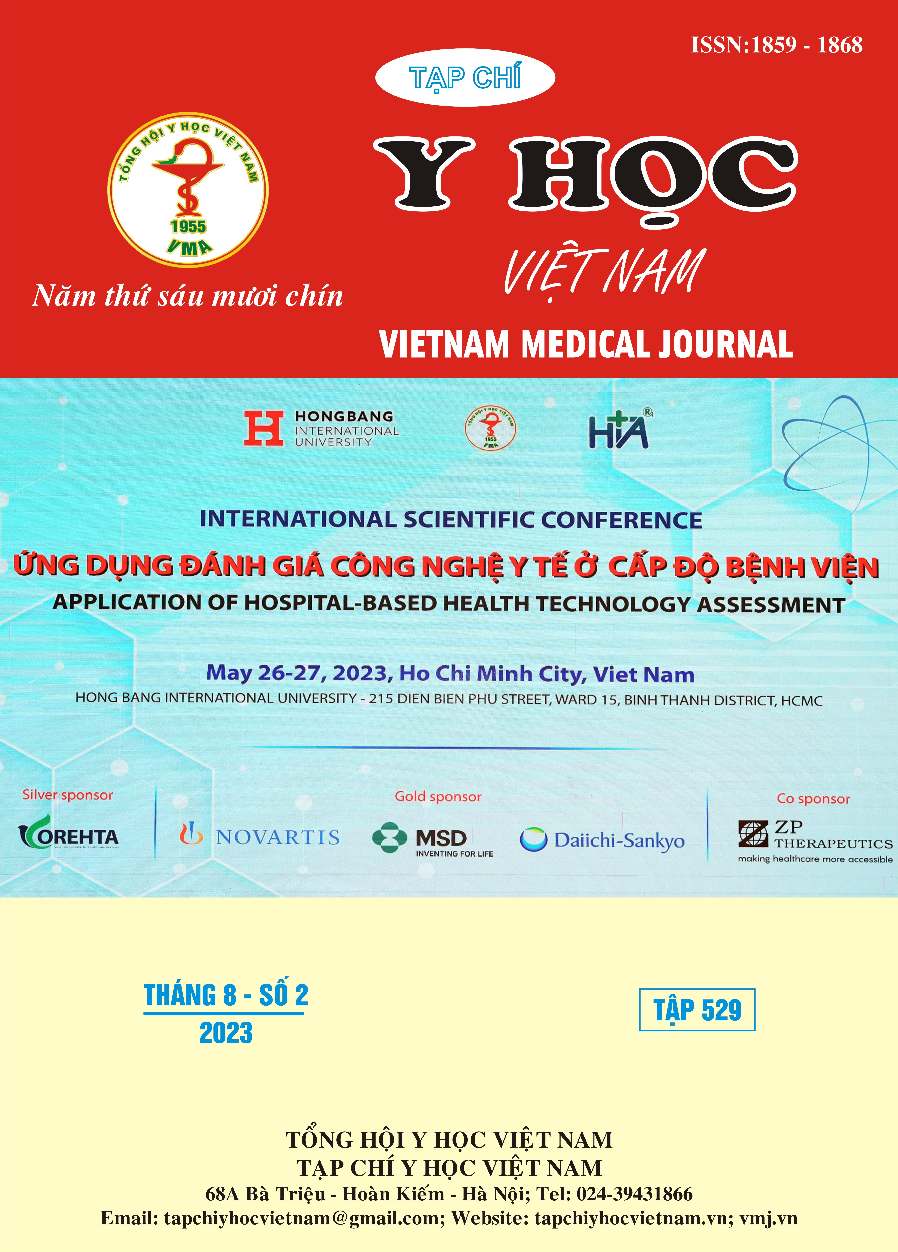DIETARY INTAKE & NUTRITIONAL STATUS OF PUBLIC HEALTH STUDENTS OF UNIVERSITY OF MEDICINE AND PHARMACY AT HO CHI MINH CITY IN 2022
Main Article Content
Abstract
Background: Eating habits and nutritional status are often formed in young years and maintained throughout adulthood. College students begin to take responsibility for their own diets, so it’s necessary to assess and adjust to students' diets and nutritional status. Objective: To identify energy, nutrients, ratio of nutrients in the diet daily day and nutritional status, and the relationship between nutrients intake and nutritional status. Subjects and research methods: Using a cross-sectional study. Personal interViews with food frequency questionnaires (FFQs) in the past 1 month and classifying nutritional status according to body mass index (BMI) standards of The World Health Organization oVer 278 Public Health students of UniVersity of Medicine and Pharmacy at Ho Chi Minh City in 2021-2022. The results were analyzed using STATA 16 software. Results: The amount of energy, lipid, glucide, fiber and Vitamin A in the college student's diet is lower than the recommended nutritional requirements. The amount of protein, the ratio of animal lipid is higher than recommended. The ratio of protein:lipid:glucide and the ratio of animal protein are at the recommended leVel. Iron intake in female students does not meet recommended needs. The percentage of underweight students is 14.4% and oVerweight-obese is 19.1%. Men haVe higher rates of oVerweight-obesity and lower underweight than women. No association was found between dietary intake and nutritional status. Conclusion: Subjects should decrease animal-based foods and increase plant-based foods; increase time playing sports, exercise. Nutrition education should be promoted.
Article Details
Keywords
dietary intake, nutritional status, FFQ, BMI, College Students.
References
2. Nguyễn Lê Quỳnh Như Và Phạm Văn Phú (2020), "Tình trạng dinh dưỡng của sinh Viên y khoa năm thứ ba trường Đại học Y khoa Phạm Ngọc Thạch năm 2020", Tạp chí Dinh Dưỡng & Thực phẩm.
3. Vũ Thị Hoa (2018), "Chất chống oxy hóa trong
khẩu phần ăn của sinh Viên khoa Y tế CÔng Cộng đại học Y Dược TpHCM năm 2018", Khóa luận tốt nghiệp cử nhân Y tế CÔng Cộng.
4. Kafadar, Gokce Cakmak và các cộng sự. (2021), "The association between dietary protein intake and depression among uniVersity students".
5. Ramón-Arbués, Enrique và các cộng sự. (2021), "Factors Related to Diet Quality: A Cross- Sectional Study of 1055 UniVersity Students", 13(10), tr. 3512.
6. Van Dinh Tran và các cộng sự (2013), "Validity and reliability of a food frequency
questionnaire to assess habitual dietary intake in Northern Vietnam", 1(1).
7. Cuellar, A. E. và các cộng sự. (2021), "Protocol for the Mason: Health Starts Here prospectiVe cohort study of young adult college students"(1471-2458 (Electronic)).
8. Kawasaki, Y. và các cộng sự. (2018-2019), "Is mindful eating sustainable and healthy? A focus on nutritional intake, food consumption, and plant-based dietary patterns among lean and normal-weight female uniVersity students in Japan"(1590-1262 (Electronic)).


